Singapore Premier League
The Singapore Premier League (abbreviation; SPL) is a professional football league in Singapore. At the highest level of Singapore football league system, it is the country's primary football competition. Currently contested by 8 clubs, it consists of three rounds in which each team plays every other team once.
 | |
| Founded | 1996 (as S. League) 2018 (as Singapore Premier League) |
|---|---|
| Country | Singapore |
| Other club(s) from | Japan |
| Confederation | AFC |
| Number of teams | 8 |
| Level on pyramid | 1 |
| Domestic cup(s) | Singapore Cup Community Shield |
| International cup(s) | AFC Champions League AFC Cup |
| Current champions | Albirex Niigata (S) (4th title) |
| Most championships | Warriors FC (9 titles) |
| Most appearances | Daniel Bennett (518) |
| Top goalscorer | Aleksander Duric (321) |
| TV partners | Mycujoo 1 Play Sports Singapore Singtel TV Starhub Brunei RTB Japan J Sports |
| Website | spl |
| Current: 2021 Singapore Premier League | |
The Singapore Premier League is run by the Football Association of Singapore. Seasons run from late March to October, with teams playing 24 matches each, totalling 108 matches in the season. It is currently sponsored by AIA Group, and thus officially known as the AIA Singapore Premier League for sponsorship reasons.
Since the inception of the league in 1996, 7 clubs have been crowned champions. Warriors FC have been the most successful club with 9 titles, followed by Tampines Rovers (5), Albirex Niigata Singapore FC (3), Geylang International (2), Home United (2), DPMM FC (2) and Étoile FC (1).
History
Origins
Singapore had been represented in the Malaysia Cup through the Singapore Lions since 1921. The Lions were one of the most successful teams in the competition, having won it 24 times from 1921 to 1994. Following a dispute over gate receipts between the FAS and FAM[1] after winning the league and cup double in 1994, the Lions withdrew from the Malaysian competitions.
Subsequently, the Football Association of Singapore decided to build a professional league system. However, as it was estimated to take about a year to put in place the structure of a professional league, the Singapore Lions were given match practice in what was then the top level of domestic football, the semi-professional FAS Premier League. This team won the last FAS Premier League title, finishing the season unbeaten.
Inaugural season
The S.League was founded in 1996. The FAS invited applications for clubs to compete in the newly formed league. Eight successful applications were made. Two clubs from the Premier League – powerhouse Geylang International (renamed Geylang United; 6 consecutive Premier League titles) and Balestier United (renamed Balestier Central – joined six from the amateur National Football League – Police, Singapore Armed Forces, Tampines Rovers, Tiong Bahru United, Wellington (renamed Woodlands Wellington) and Sembawang Rangers (merger of Gibraltar Crescent and Sembawang SC) – for the inaugural edition of the S.League. The season was split into the two series. Tiger Beer Series winners Geylang United defeated Pioneer Series winners Singapore Armed Forces 2–1 in the end of season Championship Playoff to be crowned the 1st S.League champions.[2] The 30,000 crowd at the playoff remains the record attendance in the S.League.
Expansion of the League
Police FC renamed themselves as Home United for the 1997 season to reflect their representation of not only the Singapore Police Force, but also other HomeTeam Departments of the Singapore Ministry of Home Affairs such as the SCDF and the ICA. NFL side Jurong Town FC, who renamed themselves Jurong FC, joined the competition taking the number of participating clubs to 9. The league switched from its previous format to a round-robin competition. Singapore Armed Forces won their first title.
Gombak United and Marine Castle United joined the S.League in 1998, further taking the number of clubs to 11. Tiong Bahru United renamed themselves to Tanjong Pagar United at the start of the season. Singapore Armed Forces won their second consecutive title.
Clementi Khalsa joined the S.League in 1999 as a representative of the Sikh community in Singapore. The league took on 12 teams for the next five years. Home United won their first title.
Foreign Clubs
The FAS decided to invite foreign clubs to the league to improve diminishing interest. Sinchi FC, a side composed of Chinese players became the first foreign club to participate in 2003. Shi Jiayi and Qiu Li went on to become naturalised Singapore players.
J.League club Albirex Niigata entered their feeder club in the 2004 S.League. The club proved to be one of the most successful foreign sides in the S.League, drawing on the support of Japanese expats. They still play in the S.League as of 2016.
Sporting Afrique, a club made up of African players, and Super Reds, a side comprising South Korean players, became the third and fourth foreign clubs to join the competition in 2006 and 2007 respectively. Sporting Afrique were refused entry into the 2007 S.League due to off-field controversies and poor performance. In 2010, Super Reds were denied a place after three seasons following attempts to convert into a team of local players.
Chinese Super League clubs Liaoning FC (2007), Dalian Shide FC (2008) and Beijing Guoan FC (2010) entered their feeder clubs in the S.League. All three clubs each lasted one season before being pulled out of the league due to poor performances and disciplinary issues.
Bruneian club DPMM FC joined the S.League in 2009 before being pulled from the league as a result of a FIFA ban. They re-entered the league from 2012. They were the first club to base themselves outside of Singapore.
In 2010, French club Étoile FC became the first foreign side to win the S.League. Etoile pulled out of the S.League prior to the 2012 season to focus on grassroots football and youth development.
Malaysia national youth sides Harimau Muda A and Harimau Muda B were the most recent sides to join the S.League following an agreement between the Football Association of Singapore and Football Association of Malaysia to send their representative sides into their respective domestic competitions. Singapore side LionsXII returned to the Malaysian competitions in 2012.
20th season
The league took on a number of changes for the 2015 season to increase its competitiveness.[3][4] The number of clubs was reduced from 12 to 10, with the withdrawal of Tanjong Pagar United due to financial problems, and the merger of Woodlands Wellington and Hougang United.[3][5] The league returned to a three-round format used from 2001 to 2011.[3] The foreign player quota remained at five per club, but incentives were given to those who signed an under-21 player.[5] The passing time for the mandatory 2.4 km fitness test was lowered from 10 mins to 9 mins 45 s.[3] A new rule on age restrictions – a maximum of five players aged 30 and above and a minimum of three under-25 players for clubs with a 22-man squad, a maximum of four players aged 30 and above and a minimum of two under-25 players for clubs with a 20-man squad – was later reversed.[5][6]
Rebranding
The league was rebranded as Singapore Premier League on 21 March 2018. A major revamp is being made to see a greater emphasis on local youth players in a bid to strengthen the national side; this, in effect, has resulted in a number of senior and foreign stars being released or transferred overseas.[7]
Competition Format
Structure
Teams receive three points for a win and one point for a draw. No points are awarded for a loss. The champions are crowned at the end of the season. Teams are ranked by total points, then goal difference, goals scored, and then the number of wins. If still equal, the same tiebreakers are used on head-to-head records between the teams, followed by a better fair play record. There is no relegation or promotion system in the league. Clubs enter the Singapore Premier League by invitation of the Football Association of Singapore.
| Seasons | No. of Clubs | Matches per Club | Notes |
|---|---|---|---|
| 1996 | 8 | 14 × 2 series | One title playoff match between series winners at the end of the season. |
| 1997 | 9 | 16 | |
| 1998 | 11 | 20 | |
| 1999, 2000 | 12 | 22 | |
| 2001, 2002, 2003 | 12 | 33 | In 2003, matches proceeded to a penalty shootout in the event of a draw. Shootout winners were awarded an extra point on top of the draw. |
| 2004, 2005 | 10 | 27 | |
| 2006 | 11 | 30 | |
| 2007, 2008, 2009, 2010, 2011 |
12 | 33 | DPMM's results were expunged towards the end of 2009 following a FIFA ban, officially leaving 11 teams playing 30 matches each. |
| 2012 | 13 | 24 | |
| 2013, 2014 | 12 | 27 | The league was split into two-halves after matchday 22. Teams in each half play every other team from their half once, for an additional five matches. Results in the 2nd phase were added to that in the 1st phase for overall standings. |
| 2015 | 10 | 27 | The league returned to a three-round format. |
| 2016, 2017 | 9 | 24 | |
| 2018, 2019, 2020 | 9 | 24 | S.League renamed to Singapore Premier League. |
Qualification for Asian competitions
The league's winners qualify for the AFC Champions League playoff spot and Singapore Cup winners qualify for the AFC Cup playoff spot. In the event of the same club winning both the S.League and Singapore Cup, the runners-up of the league takes up the AFC Cup qualification spot. Foreign clubs are ineligible to represent the Football Association of Singapore in AFC continental competitions. The qualification spot is given to the next best-placed club in the league if a foreign club wins any of the two competitions.
Clubs
A total of 25 clubs have played in the league from its inception in 1996 up to and including the 2014 season. The following 8 clubs are competing in the league during the 2021 season. There are non-Singaporean clubs that currently competes in the Singapore Premier League: Albirex Niigata (S) (satellite team of the Japanese club of the same name).
| Team | Founded | Based | Stadium | Capacity | Former Name |
|---|---|---|---|---|---|
| Albirex Niigata (S) | 2004 | Jurong East | Jurong East Stadium | 2,700 | |
| Balestier Khalsa | 1898 | Toa Payoh | Bishan Stadium | 3,500 | formed from merger of Balestier Central and Clementi Khalsa in 2002. |
| Geyland International | 1973 | Bedok | Our Tampines Hub | 5,000 | known as Geylang United from 1996 to 2012. |
| Lion City Sailors | Mid-1940s | Bishan | Bishan Stadium | 3,500 | known as Police FC in debut season; formerly Home United. |
| Hougang United | 1981 | Hougang | Hougang Stadium | 6,000 | known as Marine Castle United (1998–2001), Sengkang Marine (2002–2003), Sengkang Punggol (2006–2010; merger with Paya Lebar Punggol). |
| Tampines Rovers | 1945 | Tampines | Our Tampines Hub | 5,000 | |
| Tanjong Pagar United | 1978 | Queenstown | Jurong East Stadium | 2,700 | |
| Young Lions | 2002 | Kallang | Jalan Besar Stadium | 6,000 | |
Balestier Khalsa, Geylang International, Lion City Sailors FC, Tampines Rovers, and Warriors have played in all 24 seasons of the Singapore Premier League as of 2019.
Former clubs
- Gombak United (1998–2002, 2006–2012)
- Woodlands Wellington (1996–2014)
- Sembawang Rangers (1996–2003)
- Jurong FC (1997–2003)
- Warriors FC (1996–2019)
Years in brackets indicates seasons active in the league.
Foreign clubs
 Sinchi FC (2003–2005)
Sinchi FC (2003–2005) Super Reds (2007–2009)
Super Reds (2007–2009)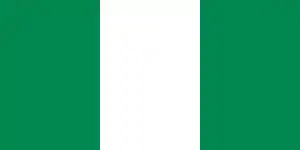
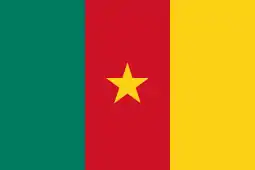
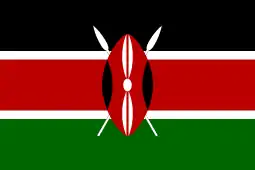
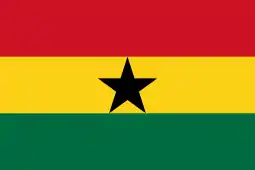 Sporting Afrique (2006)
Sporting Afrique (2006) Liaoning Guangyuan (2007)
Liaoning Guangyuan (2007) Dalian Shide Siwu (2008)
Dalian Shide Siwu (2008)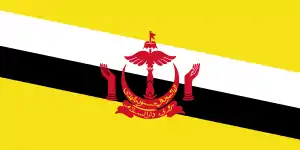 DPMM FC (2009–2020)
DPMM FC (2009–2020) Beijing Guoan Talent (2010)
Beijing Guoan Talent (2010) Étoile (2010–2011)
Étoile (2010–2011) Harimau Muda A (2012)
Harimau Muda A (2012) Harimau Muda B (2013–2015)
Harimau Muda B (2013–2015)
Years in brackets indicates seasons active in the league.
Past champions
The league has seen five clubs win the title since its inception. Warriors FC (formerly Singapore Armed Forces FC) hold the most titles at nine. In 2010, Étoile FC became the first foreign side to win the competition.[8]
* The inaugural season of the S.League was split into two series. The winners of each series completed in a Championship play-off in which Geylang United defeated Singapore Armed Forces to claim the first S.League title.
Performance by Clubs
| Club | Winners | Runners-up | Winning years |
|---|---|---|---|
| Warriors FC | 1997, 1998, 2000, 2002, 2006, 2007, 2008, 2009, 2014 | ||
| Tampines Rovers | 2004, 2005, 2011, 2012, 2013 | ||
| Albirex Niigata (S) | 2016, 2017, 2018 | ||
| Home United | 1999, 2003 | ||
| Geylang International | 1996, 2001 | ||
| DPMM FC | 2015, 2019 | ||
| Étoile | 2010 | ||
| Tanjong Pagar United | |||
| Super Reds |
Awards
Top scorers
* Mirko Grabovac was a naturalised Singapore player from 2002 until he renounced his Singapore citizenship in 2008.
Source:"S.League leading scorers". S.League.
Player of the Year Award
Young Player of the Year
* Fahrudin Mustafić held Serbian citizenship before being naturalised to play for Singapore in 2007.
Coach of the Year
People's Choice Award
Fair Play Award
Special awards
100 S.League goals
200 S.League goals
| Season | Name | Club |
|---|---|---|
| 2005 | Tampines Rovers | |
| 2007 | Singapore Armed Forces |
All-time league table
The all-time Singapore Premier League table is a cumulative record of all match results, points and goals of every team that has played in the league since its inception in 1996. The table that follows is accurate as of the end of the 2014 season. Teams in bold are part of the 2019 season.
| Pos |
Club |
No. of Seasons |
Pld |
W (PK)[16] | D |
L |
F |
A |
GD |
Pts |
Pts PG |
|---|---|---|---|---|---|---|---|---|---|---|---|
| 1 | Warriors FC a | 19 | 531 | 331 (2) | 91 | 107 | 1223 | 648 | +575 | 1088 | 2.05 |
| 2 | Home United | 19 | 531 | 301 (2) | 95 | 133 | 1081 | 669 | +412 | 1002 | 1.90 |
| 3 | Tampines Rovers | 19 | 531 | 282 (3) | 104 | 142 | 1040 | 680 | +360 | 956 | 1.80 |
| 4 | Geylang International a | 19 | 531 | 219 (3) | 114 | 195 | 821 | 740 | +81 | 777 | 1.48 |
| 5 | Woodlands Wellington c | 19 | 531 | 167 (4) | 120 | 240 | 743 | 930 | −187 | 623 | 1.19 |
| 6 | Balestier Khalsa | 19 | 531 | 150 (2) | 118 | 261 | 692 | 963 | −271 | 532 | 1.06 |
| 7 | Albirex Niigata (S) | 11 | 324 | 133 | 83 | 108 | 514 | 440 | +74 | 522 | 1.47 |
| 8 | Tanjong Pagar United | 13 | 345 | 125 (2) | 70 | 148 | 508 | 581 | −73 | 449 | 1.32 |
| 9 | Gombak United | 12 | 346 | 114 | 88 | 144 | 462 | 528 | −66 | 432 | 1.25 |
| 10 | Young Lions | 12 | 357 | 110 (1) | 79 | 167 | 479 | 599 | −120 | 406 | 1.15 |
| 11 | Hougang United f | 15 | 433 | 101 (8) | 81 | 243 | 493 | 845 | −352 | 395 | 0.87 |
| 12 | Jurong FC | 7 | 179 | 70 (7) | 29 | 73 | 261 | 274 | −13 | 253 | 1.41 |
| 13 | Sembawang Rangers | 8 | 207 | 53 (5) | 47 | 102 | 256 | 409 | −149 | 216 | 1.04 |
| 14 | Super Reds | 3 | 96 | 41 | 20 | 35 | 144 | 146 | −2 | 143 | 1.49 |
| 15 | DPMM FC d | 3 | 78 | 39 | 16 | 23 | 153 | 103 | +50 | 133 | 1.63 |
| 16 | Étoile f | 2 | 66 | 42 | 11 | 13 | 119 | 59 | +60 | 132 | 2.00 |
| 17 | Clementi Khalsa | 4 | 110 | 22 | 29 | 59 | 150 | 261 | −111 | 95 | 0.86 |
| 18 | Sinchi b | 3 | 87 | 22 (6) | 13 | 46 | 109 | 167 | −58 | 88 | 1.01 |
| 19 | Harimau Muda B | 2 | 54 | 14 | 8 | 32 | 61 | 110 | −49 | 50 | 1.11 |
| 20 | Harimau Muda A | 1 | 24 | 13 | 3 | 8 | 37 | 23 | +14 | 42 | 1.75 |
| 21 | Beijing Guoan Talent e | 1 | 33 | 10 | 6 | 17 | 30 | 49 | −19 | 31 | 0.94 |
| 22 | Liaoning Guangyuan | 1 | 33 | 8 | 5 | 20 | 33 | 63 | −30 | 29 | 0.88 |
| 23 | Sporting Afrique (Africa) | 1 | 30 | 5 | 9 | 26 | 36 | 59 | −23 | 24 | 0.80 |
| 24 | Dalian Shide Siwu | 1 | 33 | 5 | 7 | 21 | 26 | 75 | −55 | 22 | 0.67 |
| 25 | Paya Lebar Punggol | 1 | 27 | 1 | 1 | 25 | 23 | 78 | −55 | 4 | 0.15 |
- a: Does not include the title playoff match at the end of 1996 Season. Geylang United defeated Singapore Armed Forces 2–1 to clinch the S.League title.
- b: Sinchi FC had 3 points deducted for gross misconduct in 2005.
- c: Woodlands Wellington had 6 points deducted for match walkout in 2007.
- d: 2009 results involving DPMM FC were annulled due to a FIFA ban.
- e: Young Lions and Beijing Guoan Talent had 5 points deducted each for gross misconduct in 2010.
- f: Étoile FC and Hougang United had 5 points deducted each for pre-match brawl in 2011.
See also
References
- Joe Dorai (17 January 1995). "Malaysian states want 15 per cent levy to play at Kallang". The Straits Times. p. 31.
- "Geylang wins S-League's Championship match". The Straits Times. 10 November 1996.
- Osman, Shamir (4 November 2014). "Only 10 teams in S.League next year". The New Paper. Retrieved 6 November 2014.
- Low, Lin Fhoong (6 November 2014). "Changes will make S-League 'stronger, more competitive'". Today. Retrieved 6 November 2014.
- Low, Lin Fhoong (5 November 2014). "Uncertainty over S-League's changes for 2015". Today. Retrieved 5 November 2014.
- Phua, Emmanuel (24 November 2014). "Players ambivalent about S-League U-turn". Today. Retrieved 24 November 2014.
- Football: Goodbye S-League, welcome Singapore Premier League The Straits Times, 21 March 2018
- "S.League overview". S.League. Retrieved 6 March 2014.
- https://www.channelnewsasia.com/news/sport/albirex-win-singapore-premier-league-title-three-months-to-go-10552962
- Eric Ding (29 August 2005). "Golden Boot". Today. p. 38.
- "Awards night signals end of 2014 S.League season". S.League. 7 November 2014. Retrieved 18 November 2014.
- "S.League Awards Night 2015". 30 November 2015. Retrieved 19 August 2017.
- "Faris Ramli named SPL Player of the Year as FAS Nite 2019 recognises season's best". Retrieved 13 August 2020.
- "S.League.com – Amri Takes on Big Brother Role at Young Lions". sleague.com. Retrieved 19 August 2017.
- "100 Goals Award: Mohd Noor Ali – The ever smiling joker of the pack". dreamteamsteam.blogspot.sg. Retrieved 19 August 2017.
- The 2003 edition of the S.League saw the introduction of penalty shootouts if a match ended a draw. Shootout winners were awarded an extra point on top of the draw.